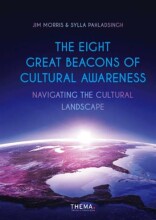Summary: Ia&c General And Ia&c Chinese
- This + 400k other summaries
- A unique study and practice tool
- Never study anything twice again
- Get the grades you hope for
- 100% sure, 100% understanding
Read the summary and the most important questions on IA&C general and IA&C Chinese
-
4 Time and space
This is a preview. There are 3 more flashcards available for chapter 4
Show more cards here -
Culture and time, what are the biggest differences?
-time is money, it needs to be 'rigorously' controlled
-time is afluid concept, it isn't a big issue, relationships are more important -
Cultures value and use space differently, such as the room they allow each other for personal greetings and how they design their working environment. Fill in the gaps:... Space is less of a potential minefield than issues of ... Space.
Physical
personal
PS: eye contact can also be a form of personal space -
Define the role of time in human interaction:
1: Time is fluid and flexible.
2: Time is sequential.
3: Time is your servant, not your master.
4: You cannot be trusted if you cannot manage your time.
5: You are flexible and like multi-tasking. -
The polychronic culture may often see the scheduled time for a meeting merely as a ...
Suggestion -
When do polychronic cultures take monochronic cultures into account?
When communicating with people in different time zones they respect that some people are getting to the office very early to make the call and some are staying late at the end of their working day. -
When can time be an quite obvious issue arising from cultural differences?
When trying to manage and plan work.
Tip: Making time a subject to discuss and agree on, for example what we mean by "on time", is a useful exercise for any cross cultural team. Understand and therefore help to manage each other's expectations about time. How soon is "now" and when we say "5 minutes" how long can we expect that to be? If time is less important to you than me, what is important to you? This sort of dialogue encourages a healthy curiosity between the different cultures in your working environment and is a good thing. -
What are the differences between the Dutch- and German business culture?
The two cultures' approach is
socially different
prepared differently
and structured differently. -
Fill in the differences in the Dutch and German approach to the monthly meetings:
1: Travel is anecessity .
2: Meetings start at traditional times.
3: Prepare solutions in advance to effect quick, efficient agreement.
4: Start with small talk whilst drinking coffee/tea. A meeting is a chance to get to know each other.
5: Offer variety at lunch and some hot food.
6: Find solution through consensus. If this takes time, then it takes time.
7: Dinner as the time where we do talk about our private lives. -
What are the 2 opposites in personal space?
Personal space invading
Some people may come across as cold and distant -
What about offices and personal space?
In some cultures:
-offices tend to be divided intocubicles
-they employ anopen-door policy (no prior appointments)
-they have physicalbarriers to zone particular areas
- Higher grades + faster learning
- Never study anything twice
- 100% sure, 100% understanding
































